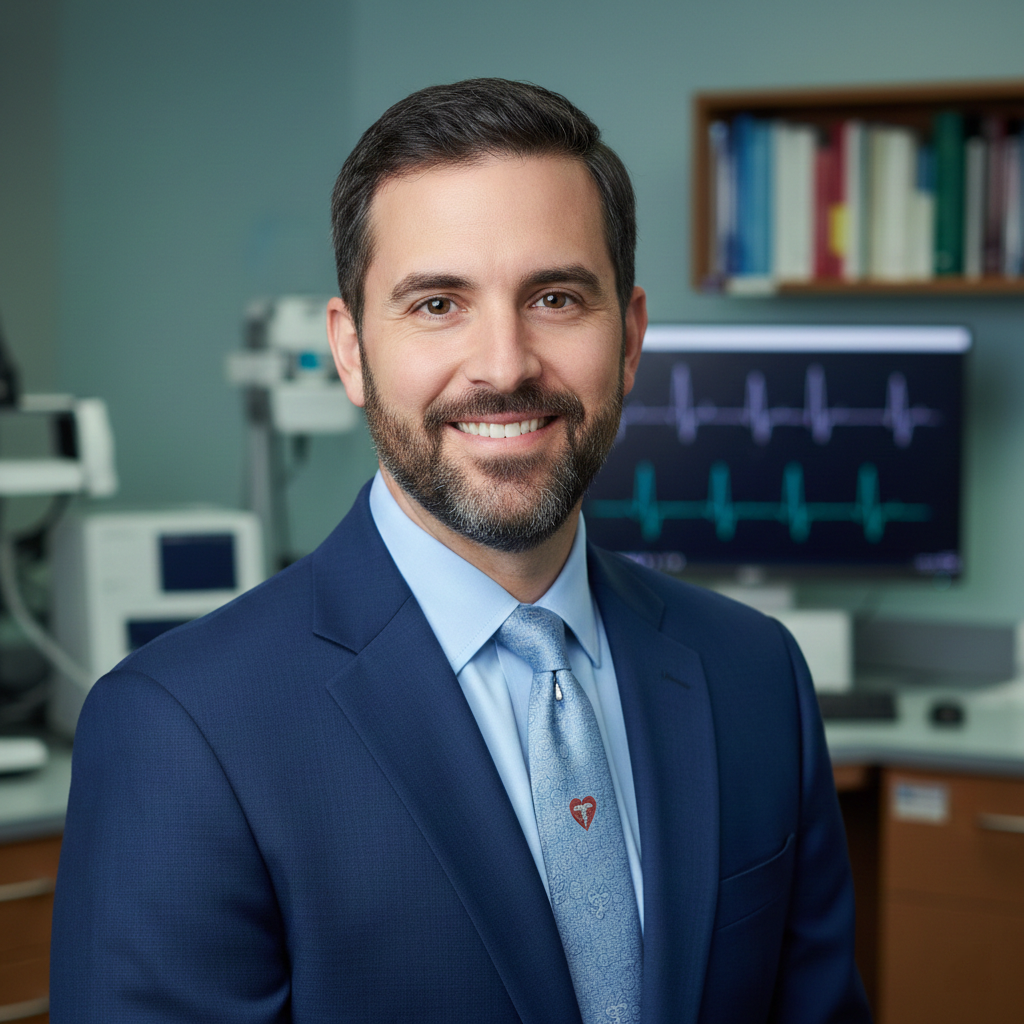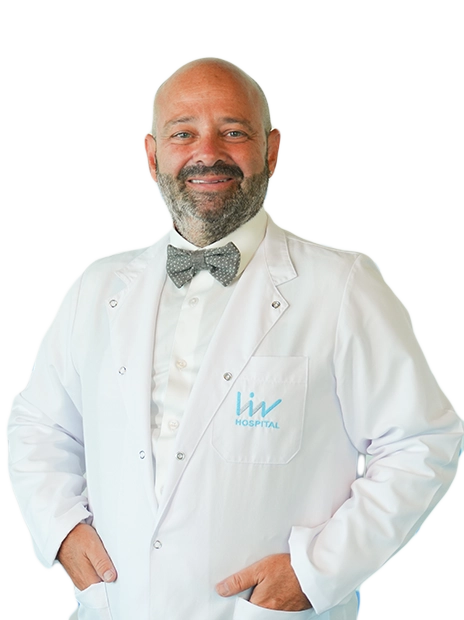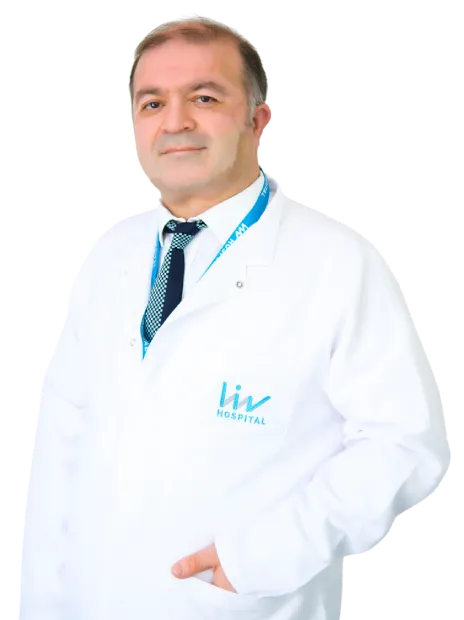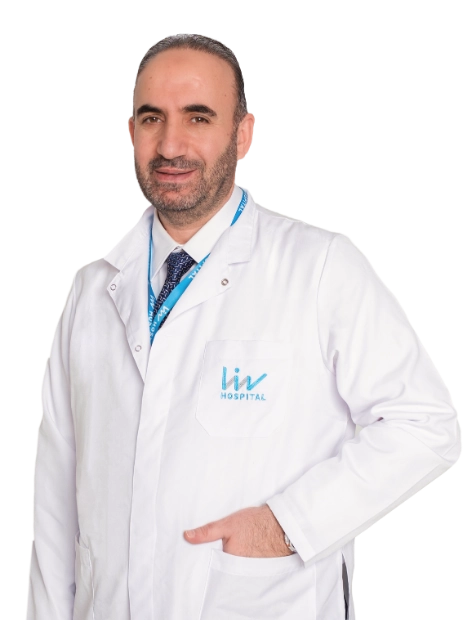
Having a coronary artery bypass graft (CABG) is a big step towards better heart health. At Liv Hospital, we know how important a smooth recovery is. Even though you might go home a few days after surgery, getting fully back to normal can take months.
Usually, people can get back to their usual life in 6 to 8 weeks. But, how fast you recover depends on your health, the surgery type, and any complications. We’ll share the 7 main points about healing and getting back to normal after CABG surgery. This will help you know what to expect.
Key Takeaways
- Most patients can resume daily activities within 6 to 8 weeks after CABG surgery.
- Full recovery may take several months, depending on individual health factors.
- The type of procedure and any complications can affect how long it takes to recover.
- Following a structured recovery plan is key for the best healing.
- It’s important for patients to watch out for signs of complications during recovery.
What to Expect After Heart Bypass Surgery

Knowing what to expect after heart bypass surgery is key. Patients need to understand the healing process to manage their recovery well. The first part of healing usually takes 5 to 7 days in the hospital. During this time, doctors watch over the patient and handle any immediate problems.
Recovering from surgery affects both body and mind. It’s important to know that recovery takes at least 4 to 6 weeks. The type of surgery, like a single or double bypass, affects how long it takes to get better. Knowing this helps set realistic goals for recovery.
Types of Bypass Procedures and Their Impact on Recovery
The complexity of the surgery impacts recovery. For example, a double bypass surgery grafts two arteries, while a triple bypass grafts three. The more extensive the surgery, the longer it takes to recover. We’ll discuss the recovery times for different surgeries later.
The 7 Key Recovery Milestones to Anticipate
Recovering from heart bypass surgery involves several key milestones. These include:
- Initial hospital stay and immediate post-operative recovery
- Gradual improvement in physical strength and endurance
- Management of pain and discomfort
- Progress in mobility and return to daily activities
- Follow-up appointments and monitoring for complications
- Participation in cardiac rehabilitation programs
- Long-term recovery and return to normal life
Knowing these milestones helps you better understand your recovery journey.
Setting Realistic Expectations for Your Healing Journey
It’s important to have realistic expectations for recovery. While everyone’s journey is different, we can give general guidelines. Most patients need at least 4 to 6 weeks off work or strenuous activities. Understanding the recovery time helps plan your journey and adjust your lifestyle.
Being informed and prepared helps you confidently navigate your recovery. We’re here to support you, providing the care and guidance you need for a smooth recovery.
Hospital Stay and Immediate Post-Operative Period

After heart bypass surgery, patients usually stay in the hospital for a few days. This time is key for watching for problems and helping them heal.
ICU Care and Monitoring (First 24-48 Hours)
The first 24 to 48 hours are very important. Patients are in the Intensive Care Unit (ICU) during this time. They are watched closely for any issues and their health is checked often.
The ICU team helps with pain, breathing, and blood flow. This helps set the stage for a good recovery.
Key aspects of ICU care include:
- Continuous monitoring of heart function and other vital signs
- Pain management to ensure patient comfort
- Assistance with breathing if necessary
- Early detection and management of possible complications
Moving to a Regular Hospital Room (Days 2-5)
When the patient gets better, they move to a regular room. This is a big step towards getting better. In this room, they keep getting care but not as much as in the ICU.
Patients start to get stronger and do simple things. The team keeps an eye out for problems and helps with pain and other symptoms.
Discharge Preparation and Education (Days 5-7)
Before leaving the hospital, the team prepares the patient for home. They learn about wound care, taking medicine, and when to see doctors again. They also get advice on what activities to do and what to eat.
Knowing how long it takes to recover from different bypass surgeries is important. For example, recovery time for double bypass surgery can be several weeks. Triple heart bypass recovery time and quadruple bypass surgery recovery time can be even longer because the surgery is more complex.
| Type of Bypass Surgery | Typical Recovery Time | Key Considerations |
|---|---|---|
| Double Bypass | 6-12 weeks | Patients may need to adjust their activity levels and follow a specific rehabilitation plan. |
| Triple Bypass | 8-16 weeks | More extensive surgery may require longer recovery periods and more intensive rehabilitation. |
| Quadruple Bypass | 12-20 weeks | The complexity of the surgery often necessitates a longer hospital stay and recovery period. |
For the first month or two after leaving the hospital, patients work on getting back to how they were before surgery. Healing and getting strong again takes longer for more complex surgeries. It’s important to follow the doctor’s advice and go to all follow-up appointments for a smooth recovery.
Recovery Time for Heart Bypass Operation: Weeks 1-4 at Home
The first month after heart bypass surgery is key for healing. During this time, patients must focus on recovery at home. This includes caring for the incision, managing pain, and following activity limits.
Managing Incision Care and Pain Control
Keeping the incision clean is vital to avoid infection and aid healing. It’s important to keep the area clean and dry, following your doctor’s instructions. Pain management is also critical. Your doctor may give you pain meds to help with discomfort. Always take the medicine as directed and report any severe pain.
Tips for Incision Care:
- Keep the incision site clean with mild soap and water
- Avoid submerging the incision in water until it’s fully healed
- Monitor for signs of infection, such as redness, swelling, or discharge
Activity Restrictions During the First Month
In the first month, it’s important to rest but also do some activity. Avoid heavy lifting, bending, or hard work. Short walks are good to keep blood flowing and prevent clots. For more on post-op care, check out this patient guide.
Feeling tired or mood swings are common during this time. These feelings usually go away as you get better.
Sleep Positioning and Breathing Exercises
How you sleep and breathing exercises are important for recovery. Sleep on your back with your upper body up to ease pain. Breathing exercises, like deep breathing and coughing, help prevent lung problems. Do these exercises as your doctor tells you.
Remember, the first four weeks at home are just the start of your recovery. By following your doctor’s advice and taking care of yourself, you’re on the right track to a successful recovery.
Physical Healing Timeline: Internal and External Recovery
Knowing how long it takes to heal after heart bypass surgery is key. The healing process has two parts: inside and outside. Each part has its own healing time.
Sternum Healing Process (8-12 Weeks)
The sternum, or breastbone, is a key area to watch during recovery. After surgery, it takes 8 to 12 weeks to heal. During this time, you might feel pain or feel unstable in your chest.
To help your sternum heal, follow these tips:
- Avoid heavy lifting or bending
- Use proper techniques when coughing or sneezing
- Wear a supportive garment if recommended by your healthcare provider
Bypass Graft Maturation Timeline
The bypass grafts also need time to mature. The exact time varies, but it’s a long-term process. It goes on for more than a few months after surgery.
Several things can affect how fast the grafts mature, including:
- The patient’s overall cardiovascular health
- Lifestyle choices, such as diet and exercise
- Adherence to prescribed medications
Monitoring Signs of Proper Healing vs. Complications
It’s important to know the signs of healing and complications. Healing is shown by less pain, better movement, and getting back to normal activities.
But, watch out for signs of trouble, like:
- Increased or persistent chest pain
- Redness, swelling, or discharge from the incision site
- Shortness of breath or difficulty breathing
If you notice any of these, tell your doctor right away.
Your recovery speed depends a lot on your health before surgery. It might take more than three months to fully recover. Knowing this can help you plan your return to normal life.
Returning to Daily Activities: Weeks 4-8
After heart bypass surgery, patients often feel more energetic and ready for daily tasks by weeks 4 to 8. It’s important to progress slowly during this recovery phase.
Household Tasks and Self-Care Progression
Start doing light household tasks and self-care activities as you recover. Begin with simple tasks like dusting or making easy meals. Increase your activity level as you feel better.
Remember, when you’re rested, be active; when you’re tired, rest. This approach helps your body heal and avoids overdoing it.
Self-care is key during this time. Make sure to get enough sleep, eat well, and take your meds as directed. These habits support your recovery and help you regain strength.
Driving After Heart Bypass Surgery (Typically 4-6 Weeks)
Most people can drive again between 4 to 6 weeks after surgery, if they’ve recovered well. Always check with your doctor before getting back behind the wheel. They’ll check if you can react quickly and safely drive.
“Before you start driving again, make sure you’re off pain medications that could impair your judgment, and that you’re comfortable wearing a seatbelt without discomfort.”
Sexual Activity Guidelines and Considerations
Sexual activity can usually start again in 6 to 8 weeks, but always follow your doctor’s advice. Start with gentle activities and watch how your body reacts. If you feel any pain or discomfort, stop and talk to your doctor.
Talking openly with your partner about your comfort and any worries is important. Your healthcare team can help you know when it’s safe to start again as part of your recovery plan.
Recovery Variations by Bypass Type and Patient Factors
Heart bypass surgery recovery is complex and influenced by many factors. These include the type of bypass and the patient’s health. The recovery time can vary a lot, depending on the number of bypasses done.
Double Bypass Recovery Time vs. Single Bypass
Patients with a single bypass surgery usually recover faster than those with multiple bypasses. A single bypass might result in a recovery period of about 6-8 weeks. On the other hand, a double bypass can take 8-12 weeks to recover from.
More grafts in a surgery mean a longer recovery. This is because the surgery takes longer and can cause more body trauma. So, patients need more time to heal.
Triple Heart Bypass Recovery Timeline
A triple bypass surgery involves three grafts and is a major procedure. The recovery timeline for a triple bypass can range from 3 to 6 months. The first week or so in the hospital is usually around 7-10 days.
After leaving the hospital, patients need to follow a recovery plan. This includes taking medication, changing their diet, and slowly increasing physical activity.
For more detailed information on post-surgery rehabilitation, patients can refer to resources like cardiac rehabilitation programs. These programs are key to the recovery process.
Recovery Time from Quadruple Bypass Surgery
Quadruple bypass surgery, with four grafts, requires a long recovery. The recovery time for quadruple bypass surgery can extend up to 6 months or more. The first few weeks are the most critical.
Patients should avoid heavy lifting, bending, and strenuous activities during this time. A medical professional noted, “The key to a successful recovery is patience and adherence to the post-operative instructions.” This includes following a healthy lifestyle, attending follow-up appointments, and participating in cardiac rehabilitation programs.
Cardiac Rehabilitation: Accelerating Your Recovery
After heart bypass surgery, a key part of recovery is cardiac rehabilitation. It’s a program to help patients get stronger, improve heart health, and lower the risk of future heart issues.
When to Start Cardiac Rehab After Surgery
Cardiac rehab usually starts a few weeks after surgery. This is when the patient has recovered enough from the surgery. The exact start time depends on the patient’s health and the surgeon’s advice.
It’s essential to follow the healthcare provider’s guidance on when to start cardiac rehab. They will check if the patient is ready for the program.
Three Phases of Cardiac Rehabilitation Programs
Cardiac rehab programs have three phases, each with its own goals.
- Phase 1: This phase happens during the hospital stay. It focuses on basic mobility and getting ready for discharge.
- Phase 2: Outpatient rehab starts a few weeks after surgery. It includes supervised exercise, heart-healthy education, and lifestyle changes.
- Phase 3: The final phase helps keep up the progress from Phase 2. It focuses on long-term lifestyle changes and staying active.
Exercise Progression and Heart Strengthening Timeline
The exercise part of cardiac rehab is tailored to each patient. It starts with low-intensity, short exercises. These gradually get more intense and longer as the patient gets stronger.
Monitoring progress and adjusting the exercise plan as needed is key. It ensures the patient’s safety and gets the most from rehab.
By the end of cardiac rehab, patients see big improvements in heart health, fitness, and quality of life.
Long-Term Recovery and Return to Normal Life
Guiding patients through heart bypass surgery recovery is key. It’s not just about physical healing. Emotional and psychological well-being are also important.
Returning to Work After Heart Bypass
Recovery times vary, but most patients take 6 weeks to 3 months to feel fully recovered. The time to go back to work depends on the job and how well you’re recovering. Desk jobs might be easier to return to than jobs that require a lot of physical activity.
Key considerations for returning to work:
- Listen to your doctor about when it’s okay to go back to work.
- Start with part-time hours or easier tasks if possible.
- Pay attention to your body and take breaks when needed.
Exercise and Physical Activity Guidelines Beyond 3 Months
As you get stronger, think about making lifestyle changes for your heart and body. Regular exercise is key for long-term recovery.
Recommended activities include:
- Brisk walking
- Swimming or water aerobics
- Cycling
- Light jogging or running (after checking with your doctor)
Start slow and gradually increase your workout intensity and time. Always talk to your doctor before starting a new exercise routine.
Emotional and Psychological Healing Timeline
Emotional and psychological recovery is as important as physical healing. Patients may feel many emotions, like relief, gratitude, anxiety, and depression.
Strategies for emotional and psychological healing:
- Try stress-reducing activities like meditation or deep breathing.
- Keep in touch with loved ones for support.
- Consider joining a support group for heart surgery patients.
By focusing on both physical and emotional recovery, patients can heal more fully and sustainably.
Conclusion: Embracing Your New Heart-Healthy Future
Recovering from heart bypass surgery is a big step. It marks the start of a new chapter in your life. With your coronary arteries bypassed, you’ll see better blood flow to your heart. This means less chest pain and shortness of breath.
This improved health comes from your body’s healing and adapting after surgery. It’s a testament to your body’s strength.
Now, it’s time to focus on a heart-healthy lifestyle. Eating well, exercising regularly, and managing stress are key. Our team is here to support you every step of the way. We’ll give you the care and resources you need to stay healthy.
By following the recovery process and the advice in this article, you’re on the path to a full recovery. We’re committed to providing top-notch healthcare and support for international patients. Our goal is to help you live a heart-healthy life after your surgery.
What is the typical recovery time for heart bypass surgery?
Heart bypass surgery recovery time varies. Most patients can start daily activities in 6 to 8 weeks. But, full recovery might take longer, depending on health and procedure type.
How long does it take to recover from double bypass surgery?
Double bypass surgery recovery is usually 6 to 12 weeks. But, it can vary based on individual health and complications.
What is the recovery time for triple heart bypass surgery?
Triple heart bypass surgery recovery is similar to double bypass. It ranges from 6 to 12 weeks. Some patients may need more time to fully recover.
How long does it take to recover from quadruple bypass surgery?
Quadruple bypass surgery recovery is longer. It can take up to 3 months or more for full recovery. This is due to the procedure’s complexity.
When can I start cardiac rehabilitation after heart bypass surgery?
Cardiac rehabilitation starts a few weeks after surgery. It begins when the patient has recovered enough from the immediate post-operative period.
How long does it take for the sternum to heal after heart bypass surgery?
The sternum takes 8-12 weeks to heal. During this time, patients must be careful with their activities to avoid complications.
When can I drive after heart bypass surgery?
Driving is usually allowed after 4-6 weeks. This is when the patient has recovered enough and is off strong pain medications.
What are the guidelines for sexual activity after heart bypass surgery?
Guidelines for sexual activity after surgery suggest waiting 6-8 weeks. Or, as advised by the healthcare provider, to ensure full recovery.
How long does it take to return to work after heart bypass surgery?
Returning to work takes 6 to 12 weeks. It depends on the job and the individual’s recovery progress.
What is the role of cardiac rehabilitation in heart bypass surgery recovery?
Cardiac rehabilitation is key in heart bypass surgery recovery. It offers a structured program of exercise, education, and support. This helps patients regain strength and improve heart health.
References
-
- GoodRx. (2025, February 12). Life expectancy after bypass surgery and recovery time. Retrieved from GoodRx
- St Vincent’s Heart Health. (n.d.). Rehabilitation after cardiac bypass surgery. Retrieved from https://www.svhhearthealth.com.au/rehabilitation/after-cardiac-bypass-surgery heart360care.com
- National Heart, Lung, and Blood Institute (NHLBI). (2022, March 24). Coronary artery bypass grafting – Recovery from surgery. Retrieved from https://www.nhlbi.nih.gov/health/coronary-artery-bypass-grafting/recovery NHLBI, NIH



































